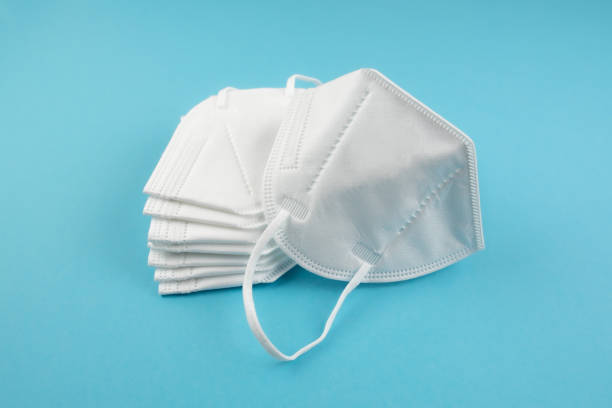
That's why you should wear N95 face masks
In the course of the pandemic, respiratory masks have become a reliable everyday companion. Wearing the masks in public spaces and in shops is being proposed by law more and more often. But even outside of the corona pandemic, respirators offer reliable protection against dust, chemicals and germs. This is how the D/Mask protects in everyday life and at work. You can buy our N95 masks online from the comfort of your own home.
Respiratory protection masks on construction sites and in the office
Until the start of the Corona crisis situation in 2020, N95 respirators were classic protective equipment for work in the medical field. But they were also used in construction as a safety measure against inhaling grinding and concrete dust. Today, however, the mask is already required when shopping or visiting the hairdresser.
What N95 masks are supposed to do
N95 masks not only protect those who wear them, but also those around them. When we breathe, humans emit aerosols - a mixture of air and tiny floating droplets that can also transport corona viruses. A person emits around 100 of these particles per second just by breathing, 200 when speaking and even 20,000 when sneezing.
Class N95 masks must retain at least 94 percent of the aerosol particles in the air - this is what the DIN EN 149 standard says. At the same time, it describes quality requirements and test methods. All masks in the test are certified according to this standard and must be able to be measured against it. In the test, we followed the standard closely and checked the filter effect, breathing comfort and fit. In addition, we checked all masks for harmful substances.
Strong protection through close-meshed mask fleece
N95 respirators provide a mechanical barrier against the entry of pathogens and particles that can burden the airways. Long before the pandemic, around 12,000 people died in Germany in 2018 from respiratory diseases after long-term exposure to hazardous substances. Around 18,000 new cases of lung problems each year are linked to construction dust and chemicals. N95 respirators reduce the risk of inhaling harmful substances.When you breathe in, you suck in air that contains dirt or germs. The particles stick to tiny droplets that, without masks, get into the nose or mouth and from there into the lungs. There remains a part that sticks to the lung tissue and mucous membranes. If the mask is certified according to the N95 standard, it can filter moderate amounts of dust and aerosols.
Better a non-optimal N95 mask than no mask at all?
If the fit is not optimal. If an N95 mask does not fit optimally, it may not protect better than a medical mask or a fabric mask. But even if a mask only filters 30 percent of the aerosol particles of an infected person and the mask of a healthy person also only filters 30 percent, the aerosols - and thus the potential viral load - are reduced by about 50 percent overall. And that's better than nothing. If the mask you are currently wearing does not fit, you should choose a different one next time. Because it is desirable to have a mask that is 100 percent tight.

HOW CAN YOU BETTER PROTECT YOURSELF?
HOW CAN YOU BETTER PROTECT YOURSELF?
To be on the safe side, it is best to wash everyday masks before wearing them for the first time. If in doubt, repeat the washing process and only use the mask if there is no perceptible odor.
Check medical fleece masks for odor before wearing. If this is the case, let the mask air out and only use it when you can no longer smell it,If the mask continues to smell, do not wear and make a complaint.
In addition to a certified N95 mask, the correct handling of the mask must also be observed in order to achieve the desired protective effect. It is important to put the mask on correctly, to observe the period of use and - for the sake of our environment - to observe the disposal instructions. Incorrectly fitted masks offer little, if any, protection against infection.


Leave a Comment